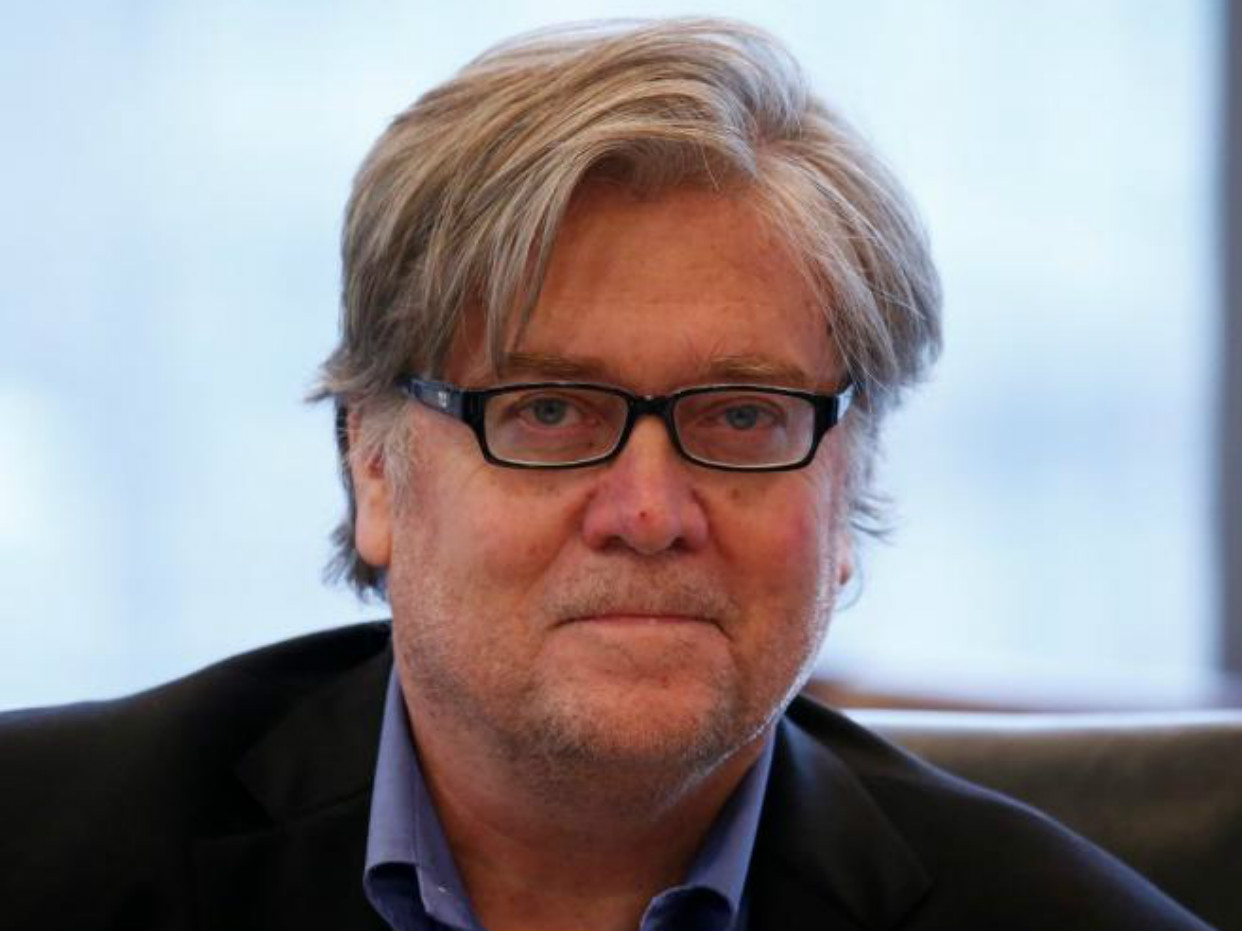Steve Bannon: De facto president?
Trump's decision to elevate chief strategist to a top national security role branded 'stone cold crazy'

A free daily email with the biggest news stories of the day – and the best features from TheWeek.com
You are now subscribed
Your newsletter sign-up was successful
Donald Trump has elevated his chief strategist, Steve Bannon, to a top national security post while downgrading the roles of the director of national intelligence and the chairman of the joint chiefs of staff.
The move adds Bannon to the "principals committee" of the National Security Council (NSC), a role usually filled by the defence and state secretaries and senior intelligence officials.
The White House also announced that meetings would only be attended by the director of national intelligence and chairman of the joint chiefs of staff if the "issues pertaining to their responsibilities and expertise are to be discussed".
The Week
Escape your echo chamber. Get the facts behind the news, plus analysis from multiple perspectives.

Sign up for The Week's Free Newsletters
From our morning news briefing to a weekly Good News Newsletter, get the best of The Week delivered directly to your inbox.
From our morning news briefing to a weekly Good News Newsletter, get the best of The Week delivered directly to your inbox.
The decision has caused uproar in the US political establishment, with Susan Rice, national security adviser under the Obama administration, calling it "stone cold crazy".
Who is Steve Bannon?
The former chairman of ultra-Conservative media group Breitbart News has gradually manoeuvred himself to become Trump's most trusted adviser.
"Bannon is a deft operator within the White House, and he has been praised by Republicans who view him sceptically as the most knowledgeable on policy around the President," says the New York Times. He was the main instigator of Trump's executive order banning refugees from seven predominantly Muslim nations.
A free daily email with the biggest news stories of the day – and the best features from TheWeek.com
However, he has been accused of "running a cabal, almost like a shadow national security council", by one intelligence official, who told the Foreign Policy website that Bannon was ensuring there was no paper trail or documentation of what was being discussed at prominent meetings in the White House.
Why the furore?
With this latest executive order, Bannon is "positioning himself not merely as a Svengali but as the de facto president", said the New York Times in an editorial this week.
It added that "in giving Bannon an official role in national security policy making, Trump has not simply broken with tradition but has embraced the risk of politicising national security".
David Rothkopf, who has written two histories of the NSC, told The Guardian that the decision would cause reverberations within the global security community.
Placing Bannon on the NSC, with his lack of national security experience, was a "radical" step, he said, adding: "It is not an overstatement to say we have a brewing crisis."
-
 Political cartoons for February 22
Political cartoons for February 22Cartoons Sunday’s political cartoons include Black history month, bloodsuckers, and more
-
 The mystery of flight MH370
The mystery of flight MH370The Explainer In 2014, the passenger plane vanished without trace. Twelve years on, a new operation is under way to find the wreckage of the doomed airliner
-
 5 royally funny cartoons about the former prince Andrew’s arrest
5 royally funny cartoons about the former prince Andrew’s arrestCartoons Artists take on falling from grace, kingly manners, and more
-
 Crisis in Cuba: a ‘golden opportunity’ for Washington?
Crisis in Cuba: a ‘golden opportunity’ for Washington?Talking Point The Trump administration is applying the pressure, and with Latin America swinging to the right, Havana is becoming more ‘politically isolated’
-
 Trump touts pledges at 1st Board of Peace meeting
Trump touts pledges at 1st Board of Peace meetingSpeed Read At the inaugural meeting, the president announced nine countries have agreed to pledge a combined $7 billion for a Gaza relief package
-
 Why are election experts taking Trump’s midterm threats seriously?
Why are election experts taking Trump’s midterm threats seriously?IN THE SPOTLIGHT As the president muses about polling place deployments and a centralized electoral system aimed at one-party control, lawmakers are taking this administration at its word
-
 ‘Restaurateurs have become millionaires’
‘Restaurateurs have become millionaires’Instant Opinion Opinion, comment and editorials of the day
-
 Should the EU and UK join Trump’s board of peace?
Should the EU and UK join Trump’s board of peace?Today's Big Question After rushing to praise the initiative European leaders are now alarmed
-
 Witkoff and Kushner tackle Ukraine, Iran in Geneva
Witkoff and Kushner tackle Ukraine, Iran in GenevaSpeed Read Steve Witkoff and Jared Kushner held negotiations aimed at securing a nuclear deal with Iran and an end to Russia’s war in Ukraine
-
 Kurt Olsen: Trump’s ‘Stop the Steal’ lawyer playing a major White House role
Kurt Olsen: Trump’s ‘Stop the Steal’ lawyer playing a major White House roleIn the Spotlight Olsen reportedly has access to significant US intelligence
-
 Trump’s EPA kills legal basis for federal climate policy
Trump’s EPA kills legal basis for federal climate policySpeed Read The government’s authority to regulate several planet-warming pollutants has been repealed